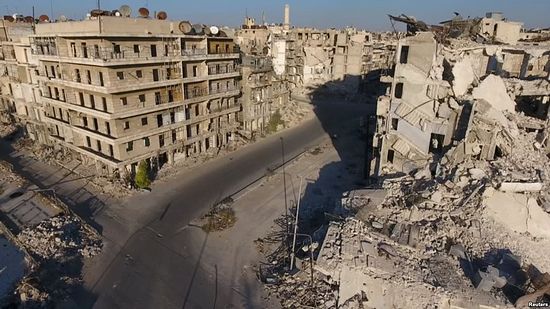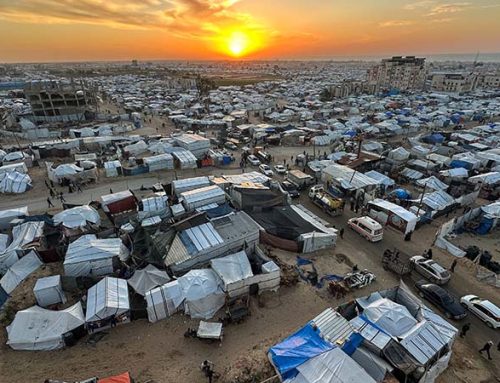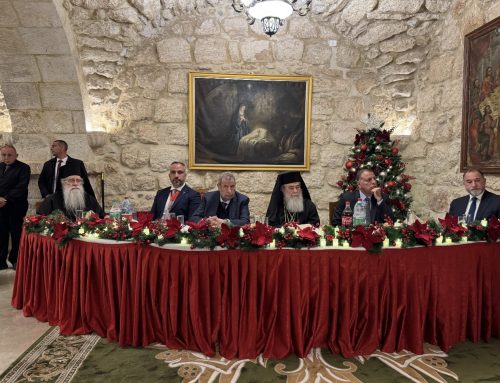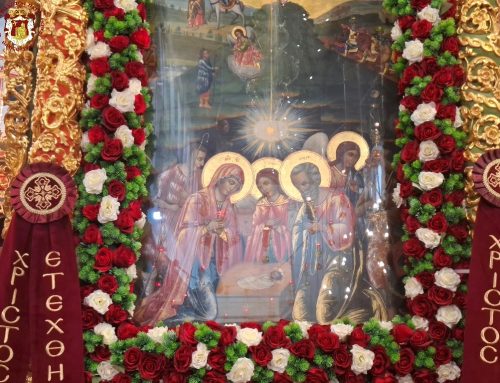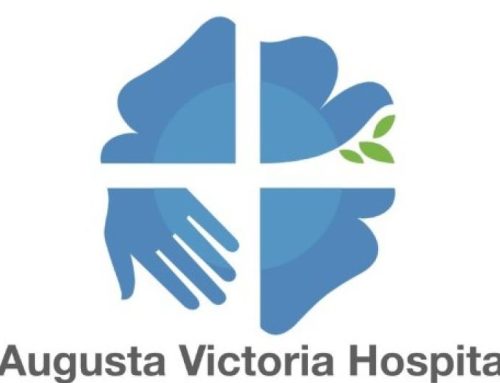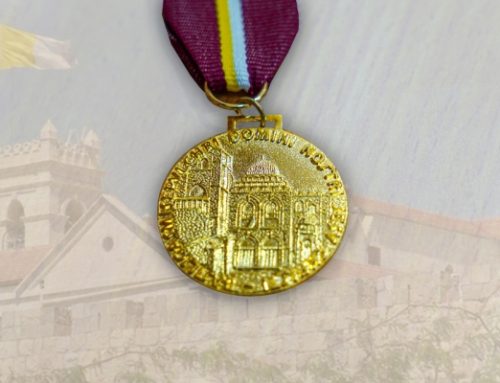“He established in our Archdiocese of Aleppo, Alexandretta and Their Dependencies a good seedling and institutional activity without peer. In his absence, just as in his presence, the deposit of this good seedling flourished. What we see today in terms of clinging to the land and the Church and holding fast to the faith and values is the result of the nurturing that members of the diocese received at the hands of our pastor, Metropolitan Paul Yazigi and his approach will continue, as we hall hope for his return.”
With a lump in his throat, with great hope for the return of Metropoltian Paul Yazigi, his vicar Archimandrite Mousa al-Khasi spoke to the television channel Telelumière from the offices of the Greek Orthodox diocese in Aleppo, saying, “Our diocese has been subjected to tragedies and great hardships, to such a degree that it deserves to be called ‘the diocese of Job’. The first of these tragedies was in Tabaka, from which around 180 families fled. Then the tragedies reached Idlib, with the same suffering in terms of destruction and forced expulsion, but the apex of these tragedies was in the city of Aleppo, where we lost ninety percent of our properties, which were subject to vandalism and destruction. And the great pain remains the kidnapping of Metropolitan Paul and his absence from his diocese.”
Archimandrite al-Khasi continued, “In addition to losing a large proportion of our properties, fifty members of our diocese have been killed due to the security situations to which Aleppo has been subjected, not to mention the difficulties of social life, the deterioration of infrastructure, the lack of electricity and its constant interruption, and the lack of drinking water, medicines and other necessities of life.”
He adds, “On account of this standard of living, we are confronted with a harsh pain, the emigration of members of the diocese to places outside Syria and the exodus of many of them to more secure regions of Syria, to the point that the proportion of those who have left has reached forty-five to fifty percent,” explaining that the original number of the church’s families in Aleppo was around 4300, of which only 2200 remain on account of the tragedy in Aleppo. “Despite the shrinking number of families due to hemorrhaging emigration, we have on the other hand we have the steadfastness in faith of those remaining, the attachment of the youth to their church and the activities that they undertake, like a hive of bees ceaselessly working day and night to fulfill the mission of their pastor Metropolitan Paul Yazigi. They have not lost hope for his return. The tangible things that we are seeing now make us feel that he is present. We are working so that he will be present and the good seedling that he planted is a deposit for us that we will pass on even better.”
Regarding the church’s institutional situation, Archimandrite al-Khasi states, “We have six churches in Aleppo, a diocesan council, a youth group, a choir, the St Elias Scouts, various brotherhoods, Sunday schools, and the al-Mashriq Model Schoool,which was looted and pillaged. Faced with this vast amount of tragedy, the Church did not stand idly by, but rather was distinguished by a tenacious will and resolve and made plans and established church institutions in order to deliver a message, which is that the fierce winds will not be strong enough to erase the culture of values and to uproot it from its roots. Therefore our father Patriarch John X has not abandoned Aleppo for a moment. It is at the heart of his daily spiritual and institutional work and for this reason our diocese, despite the absence of its pastor, has not been an orphaned diocese, but rather a diocese flourishing even in moments of weakness, receiving attention from our father the patriarch and from the fathers of the synod who have embraced this diocese spiritually, morally, and materially.”
He added that, with the blessing of Patriarch John X and through the Department of Ecumenical Relations and Development of the Greek Orthodox Patriarchate of Antioch, he has prepared a range of projects and programs that provide job opportunities for people so that they can work and live with dignity, starting with a charity dispensary that he established with the support of the Nour el-Ehsan Association, which provides medical necessities at nominal prices. The church also has a charitable committee that helps with difficult surgical operations in addition to distributing medicines through the Department of Ecumenical Relations and Development and the Red Crescent.
Archimandrite al-Khasi continued, “There have come to be needs at various levels, including the issue of education and strengthening cultural development. We launched the ‘Good Seed’ program and opened the Mar Elias Kindergarden, which is a largely free kindergarten.”
In closing, Archimandrite al-Khasi thanked the delegation from Telelumière for their work and praised the channel’s role and the delegation’s courage in presenting the Christmas activities that the diocese in Aleppo will undertake, including Christmas concerts and exhibitions, the proceeds from which will go to support needy families. The archimandrite stated that, “Despite the difficulties, our God is present among us, in our faith, and in our hearts.”
Source: Pravoslavie.ru

